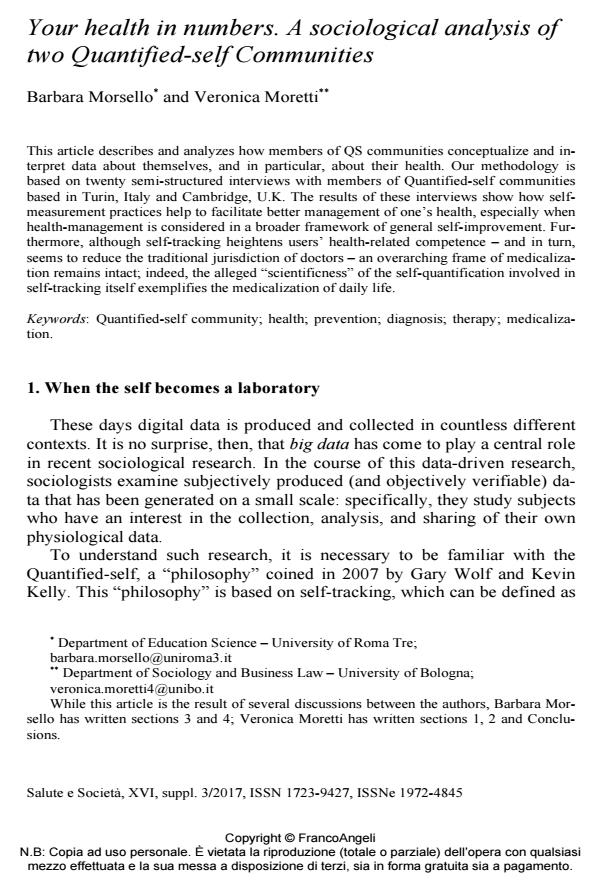Your health in numbers. A sociological analysis of two Quantified-self Communities
Journal title SALUTE E SOCIETÀ
Author/s Barbara Morsello, Veronica Moretti
Publishing Year 2017 Issue 2017/3-Suppl.
Language English Pages 14 P. 214-227 File size 87 KB
DOI 10.3280/SES2017-SU3014
DOI is like a bar code for intellectual property: to have more infomation
click here
Below, you can see the article first page
If you want to buy this article in PDF format, you can do it, following the instructions to buy download credits

FrancoAngeli is member of Publishers International Linking Association, Inc (PILA), a not-for-profit association which run the CrossRef service enabling links to and from online scholarly content.
This article describes and analyzes how members of QS communities conceptualize and in-terpret data about themselves, and in particular, about their health. Our methodology is based on twenty semi-structured interviews with members of Quantified-self communities based in Turin, Italy and Cambridge, U.K. The results of these interviews show how self-measurement practices help to facilitate better management of one’s health, especially when health-management is considered in a broader framework of general self-improvement. Furthermore, although self-tracking heightens users’ health-related competence - and in turn, seems to reduce the traditional jurisdiction of doctors - an overarching frame of medicalization remains intact; indeed, the alleged "scientificness" of the self-quantification involved in self-tracking itself exemplifies the medicalization of daily life.
Keywords: Quantified-self community; health; prevention; diagnosis; therapy; medicalization.
- Digital Health and the Gamification of Life: How Apps Can Promote a Positive Medicalization pp.157 (ISBN:978-1-78754-366-9)
Barbara Morsello, Veronica Moretti, Your health in numbers. A sociological analysis of two Quantified-self Communities in "SALUTE E SOCIETÀ" 3-Suppl./2017, pp 214-227, DOI: 10.3280/SES2017-SU3014